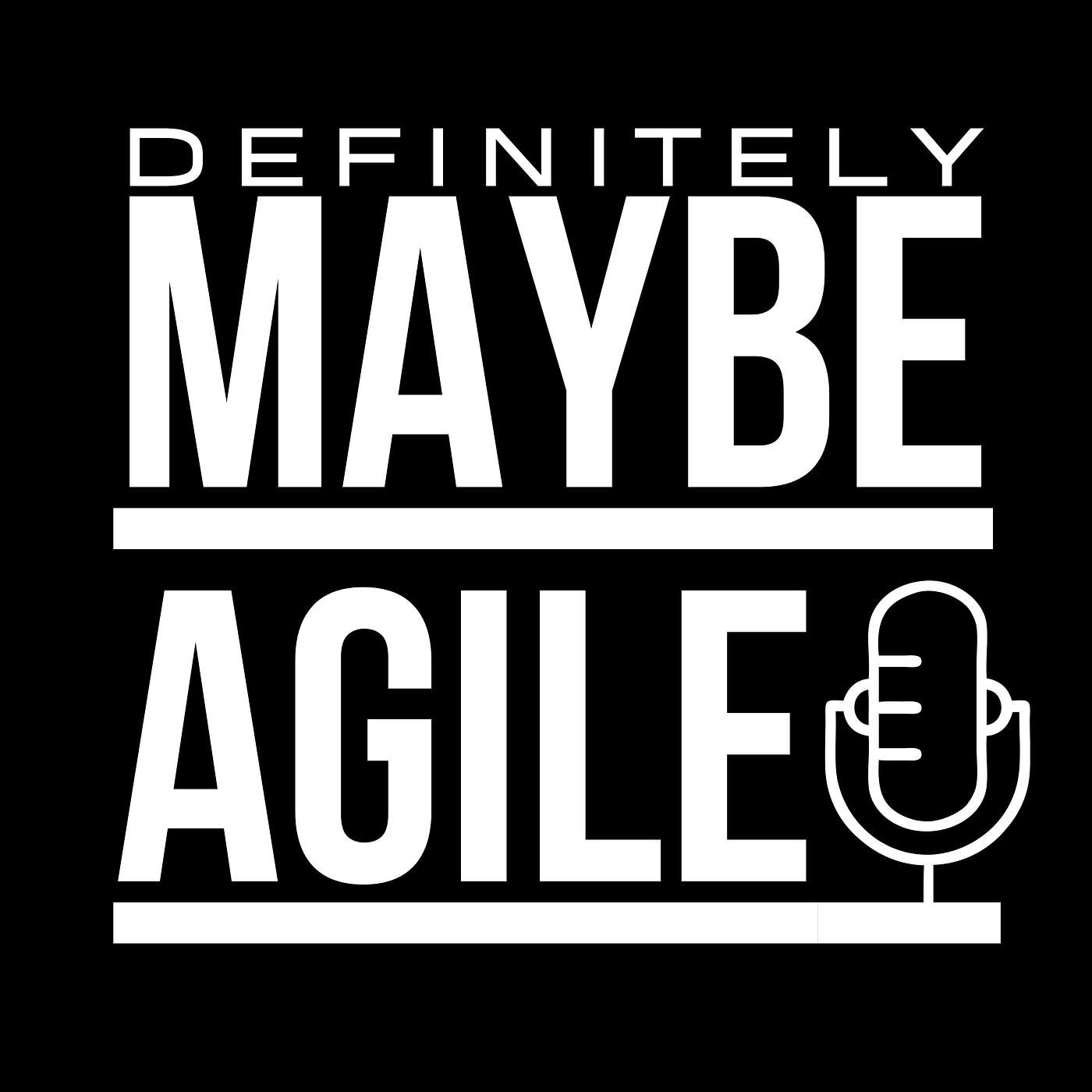Definitely, Maybe Agile
Flow Over Efficiency with Steve Pereira
Feb 19, 2026
Season 3
Episode 208
Peter Maddison and Dave Sharrock
Peter Maddison and Dave Sharrock sit down with Steve Pereira, founder of Visible Flow Consulting, to talk about something most organizations get backwards: the obsession with efficiency at the expense of actual flow.
Steve works with large companies to improve operational performance through value stream mapping and continuous delivery. But the conversations he keeps having aren't about cutting costs. They're about untethering capable people from the systems that are quietly holding them back.
In this episode, the three dig into why high utilization is often the enemy of good work, how lean thinking applies to knowledge work without losing what makes knowledge work different, and why adding AI on top of a broken system just makes things break faster.
If your organization feels like it should be doing more than it is, this one's worth your time. And if you want all 4 takeaways, don't miss the last few minutes of the episode.
This week´s takeaways:
- Step back from the work to look at how the work works. Whether it's a value stream mapping session or a quiet moment of reflection, intentional distance helps you see not just whether the saw is dull, but whether you're sawing the right tree.
- High utilization is not efficiency. Running people and teams at full capacity removes the slack needed to respond, adapt, and make good decisions. Optimal is closer to 80 percent. The rest needs to be budgeted, not eliminated.
- Understand your system before adding new tools. Whether it's AI, automation, or the latest framework, bolting new capabilities onto a system you don't fully understand tends to make existing problems worse, not better. Map first. Then act.
Extra Resources:
📖 Tools of Flow by Tody Goldratt: https://www.goodreads.com/es/book/show/75304520-goldratt-s-rules-of-flow
 Flow Over Efficiency with Steve Pereira
39:13
Flow Over Efficiency with Steve Pereira
39:13
 AI Foghorns and the New Rules of Innovation
22:29
AI Foghorns and the New Rules of Innovation
22:29
 Beyond On-Time, On-Budget with Deborah Kaminetzky
29:17
Beyond On-Time, On-Budget with Deborah Kaminetzky
29:17
 Why Predictability Beats Features with Ivan Gekht
30:43
Why Predictability Beats Features with Ivan Gekht
30:43
 Five AI Predictions for 2026
24:30
Five AI Predictions for 2026
24:30
 Blind Spots and Better Leaders with Jill Macauley
35:18
Blind Spots and Better Leaders with Jill Macauley
35:18
 Rethinking HR as a product with Josh Hill
40:54
Rethinking HR as a product with Josh Hill
40:54
 AI Tools for Product Managers: Beyond Just Writing User Stories
19:43
AI Tools for Product Managers: Beyond Just Writing User Stories
19:43
 Generative AI Readiness with Justin Trombold
40:40
Generative AI Readiness with Justin Trombold
40:40
 How AI is Transforming Banking Customer Service with Rick Delisi
43:07
How AI is Transforming Banking Customer Service with Rick Delisi
43:07
 Empowering Organizations from the Inside with Barbara Whittmann
38:44
Empowering Organizations from the Inside with Barbara Whittmann
38:44
 Navigating Change Through Leadership and Culture with Hanna Bauer
48:23
Navigating Change Through Leadership and Culture with Hanna Bauer
48:23
 Stay Close to Your Customers (And Your Why) with Hussein Hallak
38:32
Stay Close to Your Customers (And Your Why) with Hussein Hallak
38:32
 Why Dedicated Teams FAIL (And What Actually Works Instead)
25:08
Why Dedicated Teams FAIL (And What Actually Works Instead)
25:08
 How AI is Transforming UX and Agile Teams with Nick Cawthon
29:02
How AI is Transforming UX and Agile Teams with Nick Cawthon
29:02
 The Hidden Problem With Customer Journey Mapping
17:59
The Hidden Problem With Customer Journey Mapping
17:59
 One Pizza Teams vs Two Pizza Teams: When Size Actually Matters
34:00
One Pizza Teams vs Two Pizza Teams: When Size Actually Matters
34:00
 Product Diseases and Vision-Driven Development with Radhika Dutt
36:29
Product Diseases and Vision-Driven Development with Radhika Dutt
36:29
 AI Agents: Friend or Foe?
16:19
AI Agents: Friend or Foe?
16:19
 What Your Employees Are Really Thinking with James Warren
36:04
What Your Employees Are Really Thinking with James Warren
36:04
 Why Lean Startup Isn't Dead (And When You Need Something Bigger)
18:40
Why Lean Startup Isn't Dead (And When You Need Something Bigger)
18:40
 Risk & Agile – Why Moving Fast Doesn’t Have to Break Things
19:09
Risk & Agile – Why Moving Fast Doesn’t Have to Break Things
19:09
 Cybersecurity Insights with Peter Buckley
27:20
Cybersecurity Insights with Peter Buckley
27:20
 There Are No Safe Bets in Business Anymore
14:07
There Are No Safe Bets in Business Anymore
14:07
 AI and Knowledge Management with Derek Crager
30:47
AI and Knowledge Management with Derek Crager
30:47
